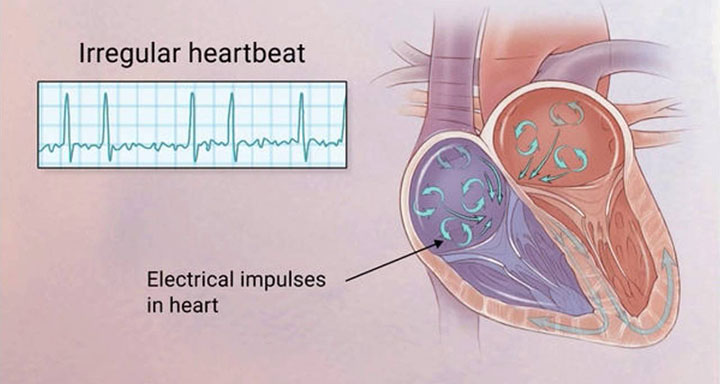Atrial Fibrillation is very commonplace today. Sadly, the main concern in patients with Afib is preventing strokes. When blood is pumped so fast and chaotically in the two small upper chambers of the heart, it forms blood clots. Those clots, then, could break free and move to the brain, leading to a fatal stroke.
Preventing strokes should be part of treatment for Atrial Fibrillation to reduce risks among patients. Statistics show that one in four strokes are a result of this condition among the elderly. Surprisingly, Atrial Fibrillation also affects people who are under 60.
Doctors usually find themselves facing a dilemma in treating this condition with anticoagulants. On average, people above the age of 76 are more likely to have Afib. However, using anticoagulants to treat Afib could cause them to bleed out. Essentially, your doctor has to weigh the risk of bleeding against the odds of a stroke.

Using Blood Thinners for Preventing Strokes
For preventing strokes, doctors will recommend anticoagulants/blood thinners to slow down or prevent blood clotting. In which case, your abnormal heart rhythm will not lead to the formation of blood clots that could travel to the brain and cause serious damage. There are quite a number of strong anticoagulants in the market including Pradaxa, Eliquis, and Xarelto. However, Warfarin has been the universal standard since the ‘50s.
Factors to Consider Before Recommending Anticoagulants for Preventing Strokes
- The patient’s medical history – A doctor must determine the patient’s medical history to find out whether they have diabetes, high blood pressure, or have been treated for heart failure before.
- The risk of falls – If patients are likely to fall and get internal or external bleeding, anticoagulants aren’t the best treatment for Atrial Fibrillation.
- Memory problems – Doctors aren’t likely to recommend blood thinners to people with memory issues as they might forget their dosage and expose themselves to serious complications.
If there seems to be as much risk of bleeding out as that of a stroke, doctors often make decisions based on the patient’s lifestyle. Each patient is treated as an individual and unique case by physicians.
Warfarin for Preventing Strokes
This is a potent drug that inhibits the synthesis of vitamin K in the liver which makes it harder for blood to clot. For this medication to work, a patient needs sufficient supply of the vitamin in their body. Dark leafy greens, like spinach, provide enough vitamin K for Warfarin to interact with and reduce the risk of stroke. People on this drug must be closely monitored. Taking too much Warfarin could cause bleeding while too little only heightens one’s risk of stroke.

Warfarin calls for extreme caution as it not only interacts with vitamin K but also other nutrients as well. Always consult your doctor before adding or removing anything from your diet. Limit your alcohol intake to reduce the chances of side effects such as numbness, diarrhea, fever, weakness, confusion, and headaches. If you experience these symptoms after taking Warfarin, call your doctor to change your medication or dosage.
Warfarin is the best drug according to renowned cardiologists, but using Warfarin requires patience and dedication. Patients must be willing to go in for regular blood level checks and consultations about seemingly trivial issues like diet, exercise, or other lifestyle changes. If you are ready to meet it halfway, Warfarin is without a doubt the best anticoagulant. More importantly, as most insurance policies cover it, it is more affordable than the alternatives. This drug is superior to newer brands as it has an antidote to counter its actions in case of an emergency, i.e. excessive bleeding.
If Warfarin isn’t good enough, there are other options like Pradaxa and Eliquis, which don’t require close monitoring, serious dietary considerations, or dose modifications. Xarelto is another drug that reduces the chances of a stroke in patients with Atrial Fibrillation. People with heart problems and liver or kidney problems must be careful on these new anticoagulants. Moreover, they are also more expensive than Warfarin. The newer medications could cost one as much as $3000 a year despite having the same possible side effects as Warfarin.
Sourced from: everydayhealth.com
Featured Image Source: Thinkstock/Wildpixel









